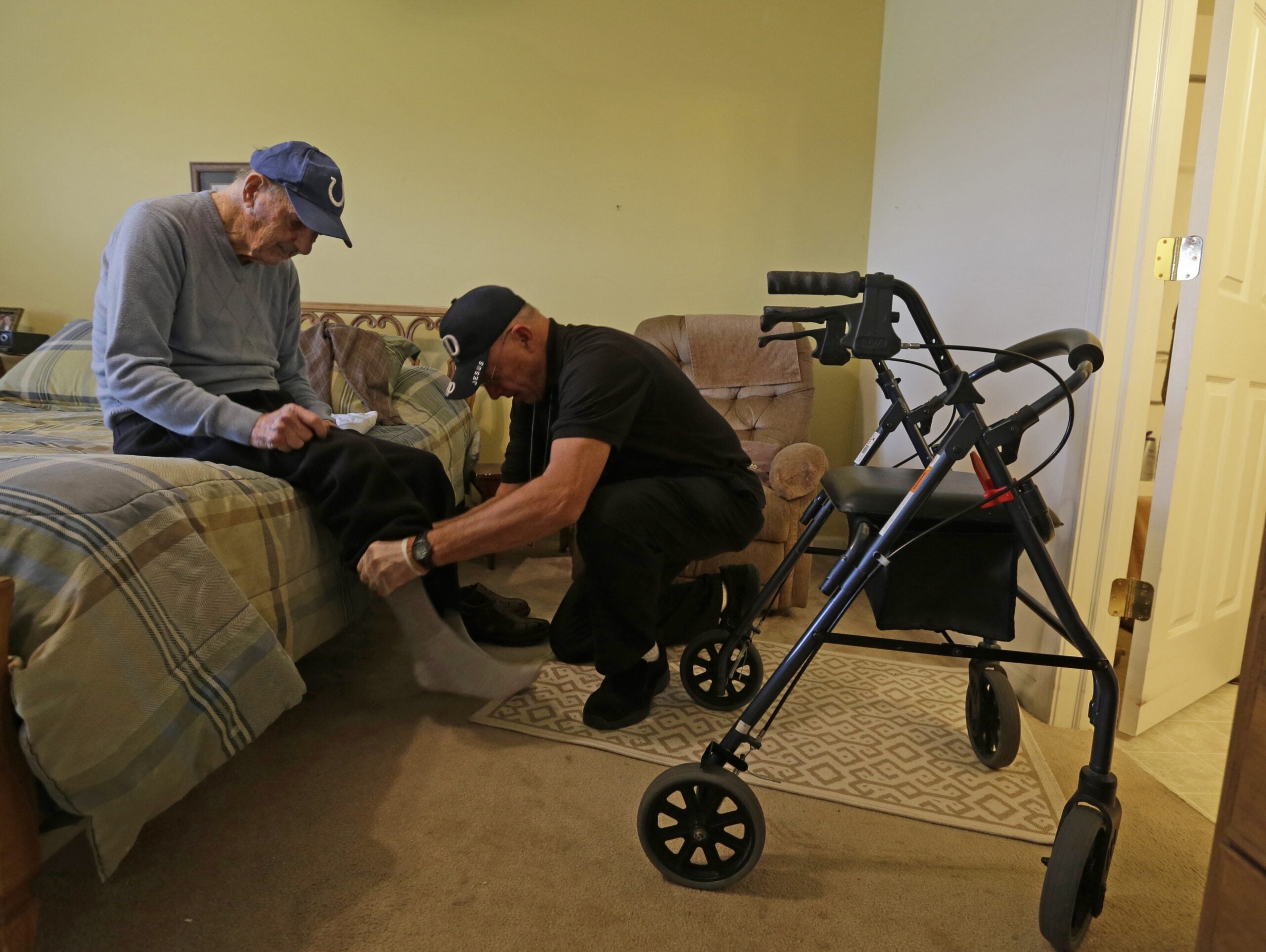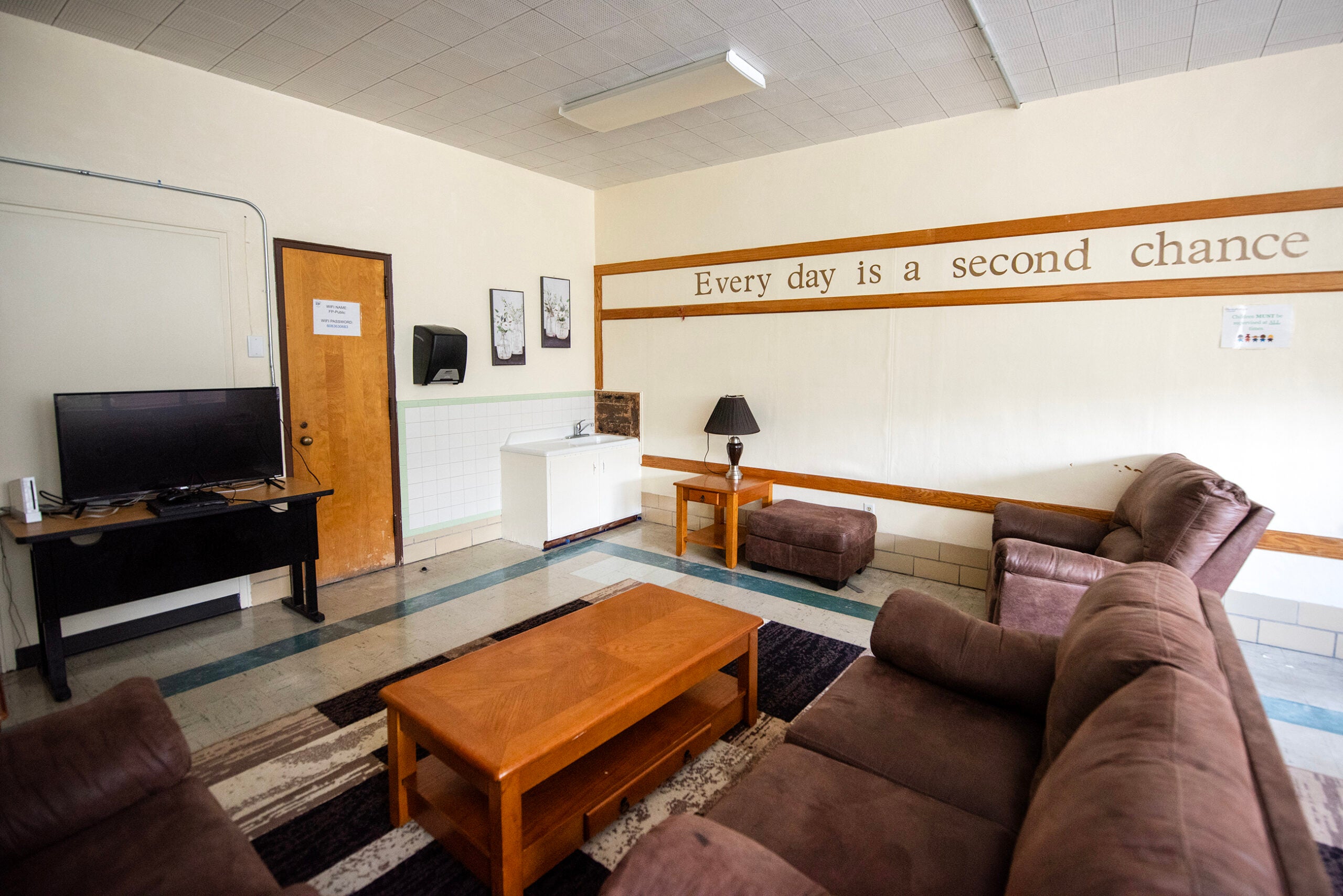As owner of a care management company that helps adult children navigate resources for their aging parents, Amy O’Rourke hears similar comments over and over again.
“I never expected this. I didn’t know this was going to happen. How does anybody figure all of this out? I have a degree in economics and I still can’t figure this out,” she said of responses she’s heard.
Motivated to provide a resource for these caregivers, O’Rourke wrote, “The Fragile Years: Proven Strategies for the Care of Aging Loved Ones.“
News with a little more humanity
WPR’s “Wisconsin Today” newsletter keeps you connected to the state you love without feeling overwhelmed. No paywall. No agenda. No corporate filter.
O’Rourke is the former president of the Aging Life Care Association and has worked in the industry of aging life care management for 40 years. The industry includes social workers, nurses and other certified and professional advocates familiar with the health care and financial systems adult children often need information about when helping to care for their parents or loved ones.
“I wanted to provide a book with inside intelligence for an older child or a relative to pick up and open up to the chapter that they’re dealing with and get immediate tips on what to do,” she said.
Defining ‘The Fragile Years’
O’Rourke’s book describes retirees in distinct categories: the first generation is 65 years old and still active; the second generation is 75 and thinking about some of the last decisions they may be making; and the third generation is in what she refers to as “the fragile years.”
Statistically, O’Rourke said if you make it to 65 years, chances are good you’ll make it to 85, and if you make it to 85, you’re likely to spend a few years in that “fragile” stage.
Entrance into the fragile years often starts out with subtle changes O’Rourke refers to as “pulling back.” For example, golfing three days a week instead of five, or going to church one day a week instead of two.
Later, someone in this stage might start reminiscing by picking up objects in the home and explaining them to family members or driving to familiar places.
After that, it’s likely some event will happen, for example an unexplained dent in the car or a bruise that the family member doesn’t want to explain.
“Typically, it’s a small event that says, ‘You know what? I need help,’” she said.
But O’Rourke said prior to and during the fragile stage, there are plenty of tips that can help lessen the stress on the relationship between the caregiver and care receiver.
Plan Ahead
Before you or your loved ones get into a crisis situation that necessitates action, plan ahead, O’Rourke said.
Learn what resources are available for older adults in your community, what senior programs are delivered and whether your hospitals have palliative care programs.
Additionally, learn how long-term care insurance works, what mechanisms are out there to pay for care and how Medicare and Medicaid work in Wisconsin to pay for assisted living.
“So, you’re going to understand what’s there and then educate yourself to the systems that you’re going to have to be interacting with,” she said.
If you have the funds, consider hiring a care manager to help navigate these questions.
O’Rourke said there are 1,800 aging life care experts across the country that are easily searchable by state online. The Aging Life Care Association lists 17 experts in Wisconsin.
Identify Values
Anyone who’s a health care decision-maker should know the values of the person for whom they’re caring.
For example, O’Rourke said her dad loved being able to eat. He was at risk of aspirating but refused to eat puréed food. O’Rourke’s family opted to let him eat what he wanted because that was something he valued.
“You’ve got to be very, very brave and … proactive if you’re going to help your person interact with the systems for the betterment of your loved ones,” she said.
She said if decision-makers aren’t particularly excited about advocating for their care receivers in that way, they should consider hiring someone who can help them and can communicate those desires to the facility’s staff.
O’Rourke said hospitals and health care facilities are always in a hurry, but that doesn’t mean caregivers and receivers need to be hurried with their decisions.
“Go slow, take your time,” she said.
Help With Peaceful Passing
Some folks who are in their last years of life might not want to leave their homes or even their recliners to get into bed. Some might not be eating as much, and that’s normal, O’Rourke said.
“If you’re leaving the world, you’re kind of losing interest in eating, and you’re losing interest in things going on because you can’t be in two places at one time,” she said. “You can’t be leaving the world and staying in it.”
Additionally, it’s important to think about whether running tests or performing emergency surgery is best for someone in their fragile stage.
“There’s an epidemic in the country and … it’s over treatment,” O’Rourke said. “Older adults are frequently over treated because the hospital is the default mechanism for facilities, nursing homes, assisted living and being at home with caregivers.”
But oftentimes people in this stage want to be left alone.
“What prevents a peaceful passing is not supporting your loved one to just stay put,” she said.
Wisconsin Public Radio, © Copyright 2026, Board of Regents of the University of Wisconsin System and Wisconsin Educational Communications Board.





